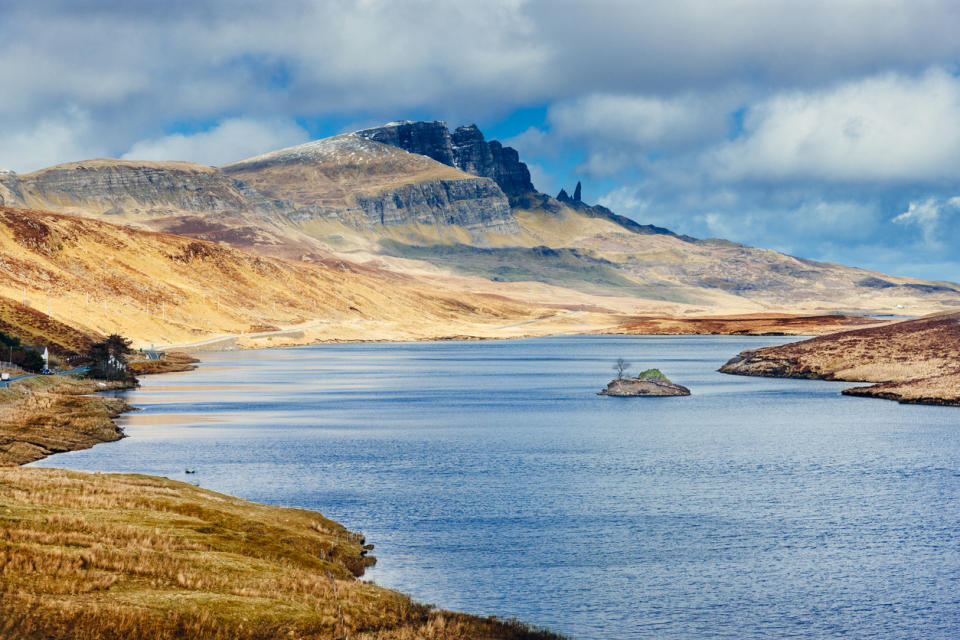Isle of Skye: How to evade police even if you haven't made a hotel reservation

The wildest, most remote place you can reach in Britain without getting out of your car? The Isle of Skye. You can drive from anywhere in mainland England, Wales or Scotland to Kyle of Lochalsh, where previously you had to take a ferry. But since 1995 the port has changed from a full stop to a forlorn comma beneath the curl of the Skye Bridge. And for the past 13 years since the toll for cars was abolished, you need not even pause to pay the collectors who replaced the ferrymen.
You might, though, be flagged down by a police officer keen to know your planned sleeping arrangements.
For most of the year, the only crowds are the contours that compress together to define the Cuillin Hills. But in July and August, with the island apparently full, Police Scotland have been turning away motorists who do not have a bed reserved, or another solution for slumbering: a camper van, or weapons-grade tent that can withstand Scottish weather.
The police want to head off ill-prepared wishful thinkers who might otherwise end up sleeping in their cars. Even though the mainland itself is peppered with “No Vacancy” signs, at least there may be options even if they involve driving to Inverness or even Glasgow.
In a summer when cash-rich B&B providers from the Mull of Kintyre to Butt of Lewis are planning their winters in the Caribbean, and the sky’s the limit for Skye hoteliers, I set off without reservations (or a car) to test the wishful thinker’s theory that there is always room at some inn or other for a solo traveller.
I evaded the police check on the bridge by taking the Caledonian MacBrayne ferry to the island from Mallaig and proceeding in a north-westerly direction towards the edge of the world.
Skye by day makes Skye at night worthwhile, even if you had to sleep in your car. The eastern shores comprise a deceptively gentle introduction to the island. Then the geology of brute force and sheer magnificence takes hold, as though you are witnessing the world when it was young, with raw rock writhing into unworldly peaks then tumbling into the steely Atlantic.
By luring visitors from across the kingdom, Europe and the world, these landscapes power the economy. But not all guests are equally valued. Talking to a succession of locals, they seem to have little time for the camper vans who wend their unwieldy way around the narrow roads and do nothing for the B&B and hotel trade.
Likewise, cruise passengers on day visits to Portree (the metropolitan pulse of Skye) have no need for a roof over their heads. They find more favour for their propensity to spend – although Paul, a stone mason who lives outside the town, says they mostly buy up supplies such as bottled water that cost a fortune on board the ship.
“They descend like a plague of locusts on the Co-op,” he says.
I rather hoped I was in the third category: people keen to pay for a stay. But not, as it turned out, on Skye. An internet search revealed somewhere even more extreme and exotic – the isle of Raasay.
At Raasay House, I shared an eight-bed dorm with four men, two women and a cheerful dog named Olympia.
As the rain pummelled down and I downed a pint of IPA in the bar, a cacophony of Italian, German, French and Spanish revealed the sources of the 2017 invasion of the far north-west corner of Europe.
I don’t know how many Skye visitors were obliged to try to sleep in their cars that stormy night, but if not every bed is taken on the island on a weekend evening in August, then there is too much capacity.
Perhaps there is too little – but tales of roadside discomfort may dampen demand next summer. By then I predict that the odd storage cupboard or meeting room will be converted into an extra guest room, and envious neighbours will decide to emulate their well-heeled B&B proprietors next door. Supply should rise to meet demand, and reap another fine harvest of tourists.

